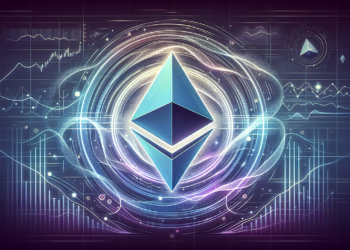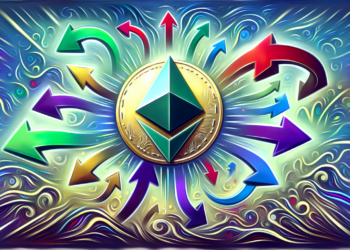MoonDAO ‘unlikely’ to colonize the moon by 2030, admits co-founder
For the last two and a bit years, MoonDAO co-founder Pablo Moncada and his decentralized autonomous organization (DAO) have been working to create a self-sustaining colony on the moon.
The timeline? Just under seven years from now.
That is, at least, the very ambitious goal of Moncada and the 5,000-member-strong MoonDAO that he co-founded in 2021.
Moncada sees DAOs as a solution to a decades-long problem — that space exploration is completely inaccessible to everyday people. Moncada thinks his model could change the face of space travel and interstellar exploration, and, if successful, might even see people living on the moon by 2030.
However, Moncada tells Cointelegraph he thinks it’s actually pretty “unlikely” — though that hasn’t stopped him and his DAO from trying.
Space exploration is extremely “walled-off,” argues Moncada — dominated by government space programs or well-funded private companies. MoonDAO, also known as “the internet’s space program,” was created to flip the script and get everyday people to fund space-related research and trav.
The DAO may not have placed anyone on the moon yet or come close to it. However, the co-founder said it has already successfully sent people into space.
In November last year, MoonDAO voted to send Coby Cotton, a cast member of the YouTube channel Dude Perfect, into space on one of Jeff Bezos’ Blue Origin spaceships.
“A DAO has never sent someone to space before, so to watch that vote happen in real time was kind of trippy. It was like, ‘this is real you know.'"
The biggest thing that MoonDAO provides, in Moncada’s view, is a fundamental shift in the way organizations approach capital raising to fund novel space research, travel, and exploration.
Historically, capital was raised by governments scraping together cash from taxes and then allocating part of the national budget to space research.
More recently, private companies such as Elon Musk’s SpaceX and Jeff Bezos’ Blue Origin have made the idea of venturing further into the unknown attractive to private investors, although they still receive billions in government contracts as well.
“The thing that MoonDAO brings to the table this is fundamentally different. It’s coordinating people from all over the world that want to make space exploration happen to allow for this new kind of financing."
Anyone seeing MoonDAO for the first time and wondering:
— MoonDAO (@OfficialMoonDAO) January 12, 2024
"What is MoonDAO?"
"Is this legit?"
"Why crypto?"
This isn't our first rodeo
We use blockchain to power our community: decentralized governance, transparent finance, and global access.
And we're only getting started. pic.twitter.com/28IZe54tVz
Something similar happened in the 1500s, explained Moncada. In 1551, the joint stock corporation was invented in England a became rapidly adopted by Western nations to finance the exploration of new territories.
“They literally had to invent new forms of coordination to fund those voyages to buy ships and start exploring the new world,” said Moncada.
“So I think we're going to see a similar thing here, where in order to fund a lot of these new missions, we’re going to start needing to use new tools, which I think in this case, are DAOs.”
No stranger to lofty goals, Moncada worked as a developer at ConstitutionDAO, an organization that raised some $49 million in a bid to purchase the only physical copy of the United States Constitution.
Ultimately, the project — like many other DAOs — failed to realize its stated aim , but Moncada says that shooting for outsized goals and coming up short is better than never attempting anything at all.
Related: Filecoin Foundation explores space for decentralized storage system
DAOs, which are typically made up of hundreds or potentially even thousands of individuals from all corners of the globe, have long struggled with issues that arise from differences in opinion, national background, and even the amount of tokens held by individual DAO members.
While DAOs are often hailed as an innovative solution to typical corporate structures, even fierce advocates of DAOs have described the model as skewing toward being “cumbersome.”
This fact is not lost on Moncada, who joked that the acronym “DAO” actually stands for “dudes arguing online”
As for building a self-sustaining colony on the moon by 2030, Moncada said that setting outsized goals and struggling hard for them is “more energizing” than reaching for something that might seem more “realistic.”
If you build it, they will come. pic.twitter.com/RLt19F1w2r
— MoonDAO (@OfficialMoonDAO) January 22, 2024
“I think people forget the timeline of Kennedy’s famous ‘go to the moon’ speech, you know?” Moncada said.
“At that point, the United States had just sent someone into low Earth orbit for the first time. That was 1961. So, going to the moon was just a ridiculous, unrealistic goal, but still, in setting that goal, the United States was able to get all of the resources it needed to do this insane thing.”
Still, Moncado is undeniably bullish on DAOs reshaping the way funding is raised.
“As the DAO ecosystem grows, the access to capital might be on par with what a government can do.”
Magazine: Doctor Who materializes in Web3 — Tony Pearce’s journey in time and space
Disclaimer: The content of this article solely reflects the author's opinion and does not represent the platform in any capacity. This article is not intended to serve as a reference for making investment decisions.
You may also like
Controversy Over Ethereum and Actions Against North Korean Hackers

Could Ethereum’s Prices Echo 2016-18 Cycle? – Anticipating Record Highs by 2025
Exploring the Potential of a New All-Time High for ETH through Analyst Predictions and Network Activity Trends by 2025

Understanding Ethereum’s Recent Divergence and How It Impacts ETH Price Recovery Possibilities
Potential Reversal Looms: How Traders' Uncertainty Could Impact Ethereum's Price Bounce Back

Blockchain Association Urges Congress to Repeal IRS DeFi Broker Rule

